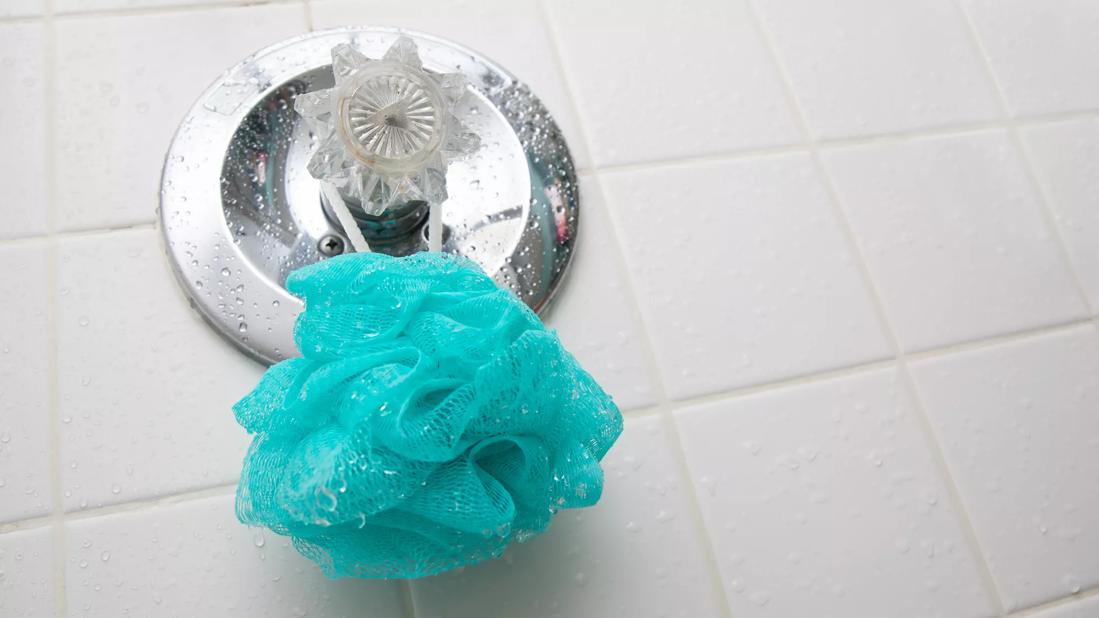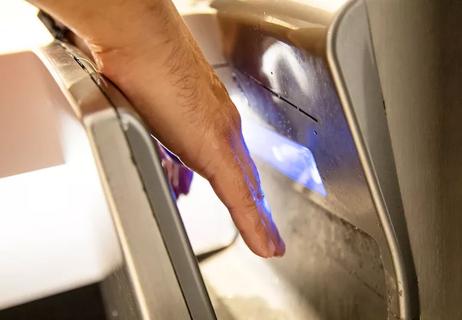This puffy shower accessory can become lodged with skin cells (and other gross things), so make sure you dry it daily and clean it once a week

It’s shower time, and you’re ready to get squeaky clean. And the number of body washes, soaps, creams, gadgets and tools that you can use in the shower is unlimited.
Advertisement
Cleveland Clinic is a non-profit academic medical center. Advertising on our site helps support our mission. We do not endorse non-Cleveland Clinic products or services. Policy
While you may gravitate to your trusty old loofah, maybe you’ve wondered: Are loofahs bad? Do loofahs hold bacteria? Are loofahs sanitary?
The answers aren’t so pretty. By their nature, loofah sponges have lots of nooks and crannies, and they’re very porous. When you use a loofah to scrub off dead skin cells, those cells become lodged in those nooks and crannies. And that sets the stage for a bacterial playground, says dermatologist Melissa Piliang, MD.
But that doesn’t mean you should never use one — you just need to know how to keep it clean. Dr. Piliang shares how to clean a loofah and how long loofahs last.
Natural loofahs are made from a dried tropical gourd, while synthetic ones are made from plastic. Regardless of the type, there’s plenty of opportunity for bacteria and other gross things to take up residency on your loofah.
“Loofahs are interesting,” says Dr. Piliang. “They’re used in a wet environment and you hang them up in the shower, which is also a wet environment. They don’t ever totally dry out, so the loofah is a beautiful breeding ground for bacteria.”
Some kinds of bacteria that may be found in your loofah? How about:
Advertisement
Loofahs can also contain fungal organisms that lead to skin infections.
“That’s why it’s important to make sure you keep your loofahs clean, replace them regularly and use them gently — don’t rub your skin too vigorously,” stresses Dr. Piliang.
You may love your loofah, but you won’t want the things that can lurk in a loofah to linger. So, how should you properly care for your loofah? Dr. Piliang offers a few tips:
How often should you change your loofah? Dr. Piliang offers the following guidance: “If you have a natural loofah, you should replace it every three to four weeks. If you have one of the plastic ones, those can last for two months.”
And pay attention to its appearance and smell, she notes.
“If you notice any mold growing on your loofah, you should throw it away and get a new one. Or if it develops a mildewy or musty odor — that’s a sign you should get rid of your loofah.”
What to use instead of a loofah? You may want to consider washcloths as a good alternative to loofahs. They don’t present the same degree of problems. Their physical structure makes them less susceptible to anything lodging in them — and also makes them easier to clean and dry, Dr. Piliang says.
Plus, you probably tend to wash them in the laundry and replace them more often than you would with a traditional loofah.
You can also consider other options like silicone bath scrubbers, which are made with antimicrobial benefits or sea sponges, which are grown in fresh bodies of water and boast some antibacterial properties.
If you’re devoted to your loofah, go ahead and keep using it. But implement Dr. Piliang’s advice about drying it out every day and cleaning it once a week. And make sure you avoid certain sensitive areas like your face and genitals.
Advertisement

Sign up for our Health Essentials emails for expert guidance on nutrition, fitness, sleep, skin care and more.
Learn more about our editorial process.
Advertisement

Follow these tips, like hand washing and self-care, to keep illness at bay as you celebrate the season

Wash your bath towels at least once a week, and washcloths at least twice a week

Some dryers spread germs instead of removing them

Over-the-counter antifungal creams usually get the job done, but it’s important to keep it from spreading in the meantime

Although it could be used as a moisturizer, this new trend is not recommended

The popular skin care ingredient can help smooth, brighten and strengthen your skin

It’s a great disinfectant for around your home, but not for your skin

Changes in texture, smell, color and performance are signs it’s time to throw the cosmetic item away

Even small moments of time outdoors can help reduce stress, boost mood and restore a sense of calm

A correct prescription helps your eyes see clearly — but as natural changes occur, you may need stronger or different eyeglasses

Both are medical emergencies, but they are very distinct events with different causes